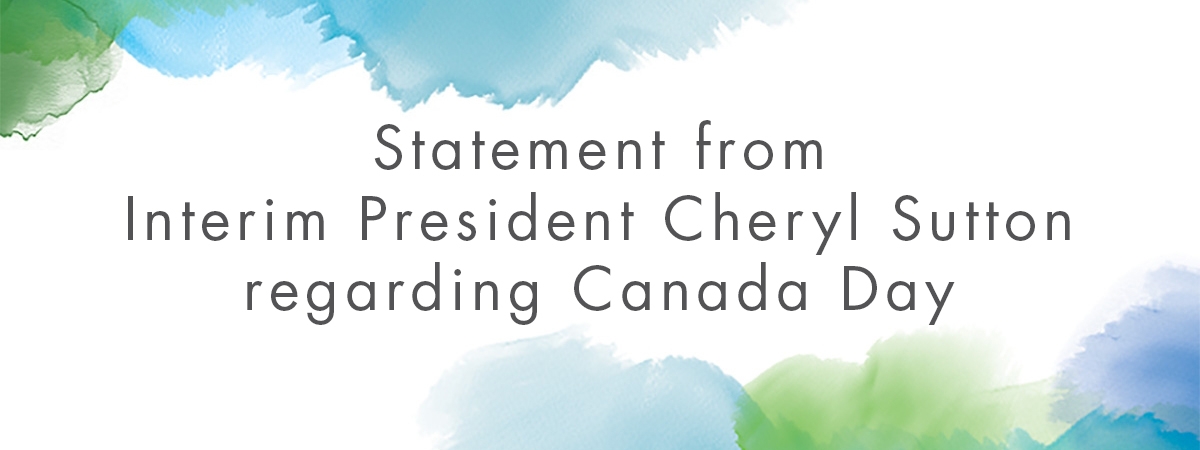Long weekend offers time to reflect, learn, and commit to reconciliation

Dear members of the Nipissing University community,
This year, Canada Day will look and feel much different as our nation collectively mourns and grapples with the deeply disturbing realities and legacy of residential schools in Canada. Across the country, there have been widespread calls to cancel Canada Day celebrations after Cowessess First Nation announced the discovery of 751 unmarked graves in Saskatchewan less than a month after the remains of 215 children were found in Tk’emlúps te Secwépemc near Kamloops, British Columbia. Nipissing University mourns with the Indigenous community and the loved ones of all the children who never returned home.
This long weekend presents an opportunity for all of us to take the time to educate ourselves on the history of residential schools in our nation, read the stories of survivors, review the Truth and Reconciliation Commission’s Calls to Action, and renew our commitment to reconciliation. We all hold the power to make a difference by shedding light on these atrocities and offering support to Indigenous communities.
As members of the Nipissing University community, our collective pursuit of knowledge must fuel the way forward to truth and reconciliation. There are many educational resources available online to help you with this journey, including this free course offered through the University of Alberta that explores Indigenous histories and contemporary issues in Canada. Additionally, there are many ways you can hold space for Indigenous Peoples this Canada Day (source: Covid19Indigenous.ca Facebook page):
- Wear orange to show your support for those impacted by Residential Schools
- Hold space for conversations with your friends and family about the history of Canada, and where your ancestors fit into this history. Challenge each other to bring one fact or piece of history to the table to share.
- Watch a free film online to learn more about Indigenous Peoples. The Aboriginal Peoples Television Network or the National Film Board are great places to find relevant films and shows.
- Follow Indigenous creators and artists on social media
- Donate to an Indigenous organization
- Learn about the history and legacy of Residential Schools
As an institution, we will continue to reflect on our role in reconciliation and our responsibility to commit to substantive change. Over the last four decades, Nipissing University has supported Indigenous education and pathways to success for Indigenous students. Through our relationships with Indigenous communities in the North, we continue to focus on meaningfully supporting Indigenous students, families, and working in partnership with communities. While some meaningful contributions to Indigenous education have been made, there is much more work ahead.
As we continue to grieve, we want to ensure all members of our community are aware of the supports and resources available through the university and broader community:
For those needing support:
- Residential Schools Resolution Health Support Program – Emotional, cultural and professional support services are available to survivors and their families
- For Staff and Faculty – The Employee Assistance Program through Aspiria is available. For more information, please visit: Aspiria (Employee Assistance Program)
- For Students – Students can access support from Student Counselling Services and through the Dibaadan Counsellor. If you require crisis support, please contact the North Bay Regional Health Centre Crisis Intervention Team at 1-800-352-1141 or the Good2Talk helpline at 1-866-925-5454.
We are grateful to be able to live and learn on the territory of Nipissing First Nation, the territory of the Anishnabek, within lands protected by the Robinson Huron Treaty of 1850, and we must continue to work collaboratively toward reconciliation.
Sincerely,
Cheryl Sutton
President and Vice-Chancellor (Interim)
